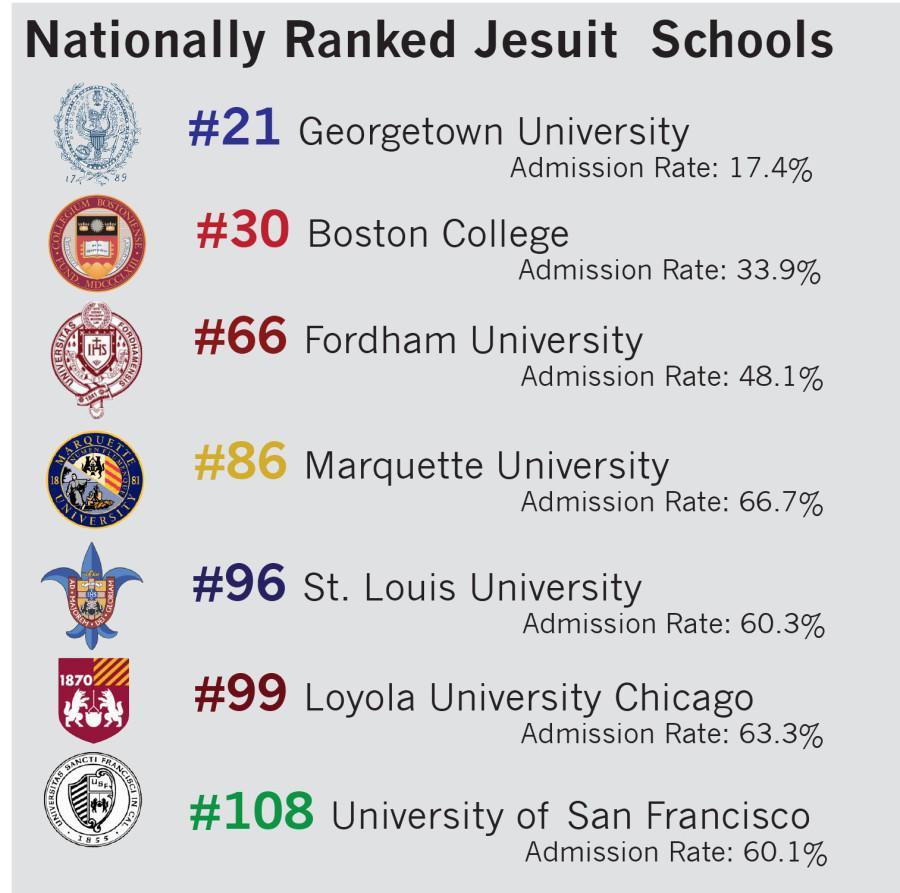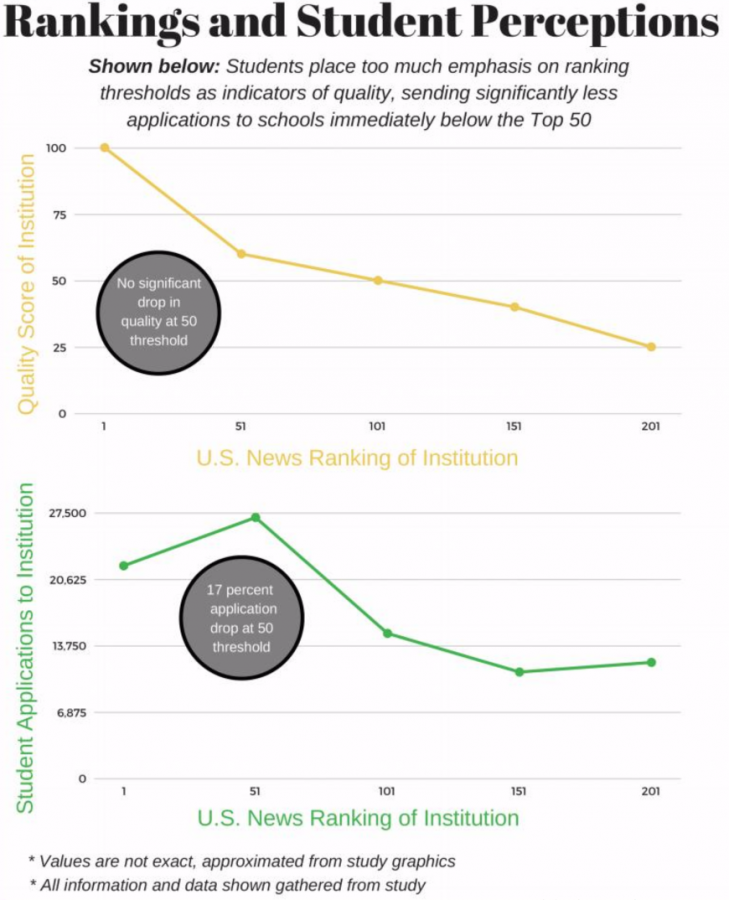The 2016 university rankings from U.S. News & World Report are out, and Marquette has fallen slightly from the 76th to the 86th spot this year.
But what does this actually mean? How does U.S. News quantify the difference between the schools it ranks, and how do the rankings illustrate the quality of education, or, perhaps more importantly, job prospects after graduation?
Provost Daniel Myers weighed in on those questions.
“Rankings, such as those issued by U.S. News, are one method of many that we use to evaluate our programs’ successes,” Myers said in an email. “The university will analyze the U.S. News rankings and examine the ways that this information can help us ensure that Marquette remains a leading national Catholic and Jesuit university.”
Myers added that students shouldn’t be too quick to decry a yearly shift in the rankings, however. “(The) year-to-year instability in these rankings rarely reflects substantial changes at a university,” Myers said.
U.S. News ranks institutions based on “widely accepted indicators of excellence” that illuminate their relative quality based on several weighted measures that education experts and U.S. News believe matter most.
The measures that carry the most weight include undergraduate academic reputation, retention and faculty resources — making up 22.5 percent, 22.5 percent and 20 percent, respectively, of the overall measure.
Academic reputation judges academic excellence based on a peer assessment survey compiled from university leaders that account for intangible metrics, such as faculty dedication, as well as opinions from over 2,200 high school counselors nationally.
One of the more tangible statistics includes retention rate, which measures the amount of students who come back to the school after their first year. The logic is that the more students who return sophomore year and end up graduating, the better the school’s classes and student services are.
Faculty resources earn a fifth of the overall measure. This considers characteristics of a university–like class size and student-faculty ratio.
The remaining measures — student selectivity (12.5 percent), which quantifies universities’ acceptance rates and student test scores, financial resources (10 percent), which measure a university’s average spending per student on educational expenditures, graduation rate performance (7.5 percent), and the alumni giving rate (5 percent) — all add to the evaluation of a university’s stature.
So how do employers see these rankings? The short answer: it depends. Those employers that recruit heavily out of Marquette seem to hold a relatively dual-edged view of them.
Take Milwaukee Tool for instance, a manufacturer of industrial power tools.
“Milwaukee Tool barely looks at national rankings of universities. It helps that Marquette earned a higher rank, but when compared to other schools, we mostly look at their curriculum and how it relates to our company,” Eric Norquist, a mechanical engineer at Milwaukee Tool, said in an email.
“When it comes down to individual candidates, we value education, but hold relevant experience, like great internships and club involvement, higher than just straight A’s,” Norquist said.
Then there is Greg Schumacher-Novak, a recruiter for General Electric Healthcare. He sees these national rankings more as an affirmation of the high-caliber student they hope to attract.
“The news of the rankings is simply additional reason for us to be invested at Marquette and committed to recruiting here,” Schumacher-Novak said in an email. “Due in part to the quality of students we attract, our high level of interest led Marquette to be named as one of GE’s 47 US Executive Schools starting in the 2014-2015 academic year.”
That list refers to the top schools GE recruits from, which is based off of the caliber of students a school produces, and how well those students would fit with the company’s culture.
But what these rankings mean to students – in their college decision process, their student experience or what they wish to embody in their professional careers – is what really matters.
Nick Malik, a freshman in the College of Communication, said rankings matter to him, but only up to a point.
“When I looked at the national rankings and saw Marquette was higher, that was a bit of a factor for me,” Malik said. “But mostly it was about if I could picture myself there, and Marquette fit perfectly.”
Matt DeLuca, a freshman in the College of Arts & Sciences, said he sees these rankings as a quantifiable measure of the quality of education he wishes to receive.
“Rankings played a decent-sized role in my decision,” DeLuca said. “They really backed up everything I heard about Marquette being a good school.”
DeLuca added that the rankings are indicative of the opportunities graduates will receive and that lower ranked schools might not be able to offer them. This includes a strong alumni network that students can connect with after graduation.
Yet, whether you are a budding freshman or an anxious senior, the opportunities forged from the programs and services that quantify these rankings may come to embody much more than the ranking itself.
“Marquette has a certain ring to it, especially when you’re in an interview. It’s known as a good school. But these rankings won’t shape my view of the university itself,” Malik said. “That will depend on the experiences I have, the people I meet, and the relationships I make.”







